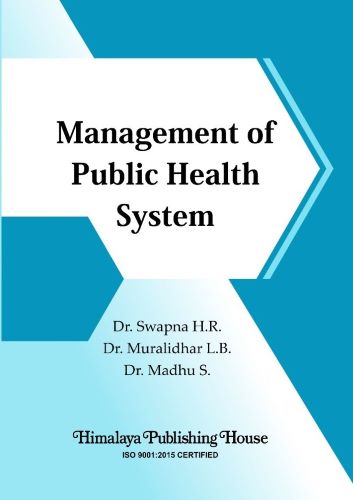In today’s global landscape, public health is vital to society’s well-being. This textbook offers students and professionals a comprehensive understanding of public health systems, principles, and challenges, providing insights into a field that is increasingly important due to global health crises, environmental changes, and the demand for equitable healthcare. The textbook covers foundational concepts like disease transmission and control and advanced topics such as epidemiology and vital statistics. Readers will gain a deep understanding of how public health systems function, the role of environmental factors on health, and the importance of disaster management and community involvement in healthcare delivery.
It also focuses on applying epidemiological methods, helping readers analyze communicable and non-communicable diseases, conduct surveillance, and participate in disease monitoring efforts. The textbook provides detailed insights into national health programs, including maternal and child health, mental health, and nutrition initiatives, enabling readers to evaluate and implement effective public health interventions. Communication is critical to public health, and the book emphasizes the role of Information, Communication, and Education (ICE) in improving health outcomes and the importance of mass media in health advocacy and education.
Additionally, medical ethics are explored in depth, guiding professionals through the complexities of patient rights, organ transplantation, clinical trials, and end-of-life care, including topics like euthanasia. Overall, this textbook is an essential resource for anyone pursuing a career in public health or related fields. It provides the tools to understand, manage, and lead in this crucial area of healthcare.
Contents –
1. INTRODUCTION TO PUBLIC HEALTH
Meaning and Scope-Changing Concepts in Public Health – Concept of Disease – Principles of Disease Transmission & Disease Control – Health for all vs Health for only those who can pay
2. PUBLIC HEALTH SYSTEM
Healthcare of Community-Public Health Planning and Management- Role of the Environment (air, water, and land) in Health-Disaster Management, Preparation and Rehabilitation- Communitization of Health
3. PRINCIPLES AND METHODS OF PUBLIC HEALTH
Epidemiology of Communicable and Non-communicable Diseases-Vital Statistics of Public Health – Principles of Epidemiological Studies and Epidemiological Methods – Types of Epidemiological Studies- Surveillance, Monitoring
4. NATIONAL HEALTH PROGRAMMES
Health Programmes on Maternal and Child Health, Family Welfare, Occupational Health, Environmental Health, Genetics, Geriatric Health, Nutrition and Health and Mental Health- Evaluation of the Programmes and Schemes-National Health Mission- Community Health Programs-Community Participation-Role of NGOs-Advocacy Campaigns
5. HEALTH EDUCATION AND COMMUNICATION
Information, Communication and Education (ICE) in Health; Principles, Methods, and Materials-Role of Mass Media-Mass Communication
6. MEDICAL ETHICS
Codes of Conduct: MCI Regulations (Professional Conduct Etiquette and eThics) – Ethics of Trust vs Ethics of Rights – Understanding of Patient Rights-Distributive Justice in Healthcare – Ethics in Organ Transplantation, Clinical Trial, Care of Terminally Ill, Euthanasia (Assisted Death)







